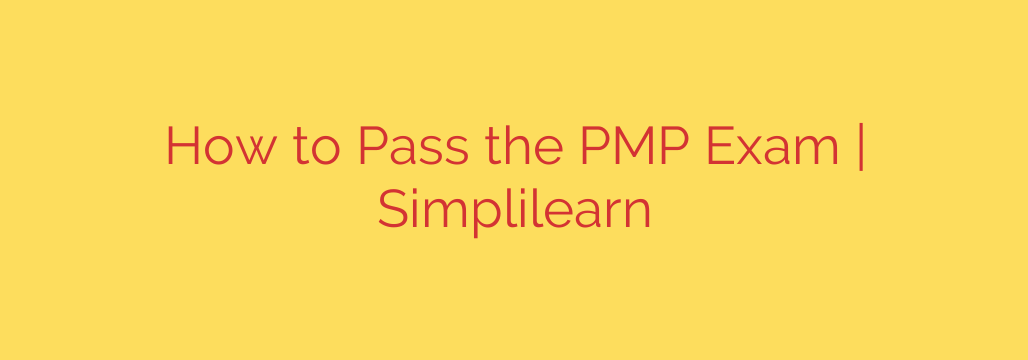
Passing the Project Management Professional (PMP) exam is a significant step for any project manager aiming to validate their skills and advance their career. This globally recognized project management certification demonstrates proficiency across various project environments and methodologies, including predictive, agile, and hybrid approaches. Success requires diligent preparation and a strategic approach, moving beyond just memorizing facts to truly understanding how to apply project management principles in real-world scenarios.
To effectively prepare, the first crucial step is to thoroughly understand the PMP Exam Content Outline (ECO). This outline details the domains covered: People, Process, and Business Environment. Familiarize yourself not only with the tasks within each domain but also with the underlying enablers. Acknowledging the exam’s emphasis on the agile and hybrid mindsets is also vital, as a significant portion of questions will reflect these approaches.
Developing a structured PMP study plan is non-negotiable. Break down the vast amount of material into manageable chunks. Allocate dedicated time each day or week for study and stick to the schedule. Your plan should cover the key domains, knowledge areas, and process groups (while understanding how they map to the current ECO) and integrate learning about agile and hybrid practices.
Selecting high-quality study materials is equally important. This includes reputable PMP exam prep books, online courses from accredited training providers, and potentially flashcards or study guides. Ensure your resources are current and aligned with the latest PMP Exam Content Outline and reference materials.
Mastering the concepts means going beyond rote memorization. Focus on understanding why certain tools, techniques, or processes are used in specific situations. The PMP exam often presents scenario-based questions designed to test your situational judgment and ability to apply the correct principles based on the project context and chosen methodology (predictive, agile, or hybrid).
One of the most critical components of preparation is consistent practice using PMP practice questions and full-length PMP mock exams. Practice questions help reinforce concepts as you learn them, while mock tests simulate the actual exam environment, helping you manage time, build stamina, and identify weak areas. Analyze your performance on practice tests thoroughly – understand why you got questions wrong and revisit the relevant material. This feedback loop is essential for targeted study.
Cultivating the correct PMP mindset is paramount. Approach scenario questions by thinking like a project manager who adheres to PMI’s ethical guidelines and best practices. For situational questions, especially those involving teams or stakeholders, consider what the most appropriate action would be according to standard project management principles, particularly within an agile or hybrid context where collaboration and value delivery are emphasized.
On the days leading up to the exam, focus on review rather than trying to learn new material. Get adequate rest the night before. On exam day, arrive early, stay calm, read each question carefully, and manage your time effectively during the test.
By understanding the exam’s structure and content, creating a solid plan, using the right resources, practicing extensively, and adopting the correct mindset, you can significantly increase your chances of passing the PMP exam and achieving this valuable project management certification.
Source: https://www.simplilearn.com/pmp-exam-preparation-guide-pdf








